afterLoad (456.22KB) (5.9ms)
afterInitialise (1.27MB) (67.27ms)
afterRoute (870.39KB) (41.06ms)
beforeRenderComponent com_tags (20.38KB) (360μs)
afterRenderComponent com_tags (1.32MB) (150ms)
afterDispatch (27.03KB) (5.36ms)
beforeRenderRawModule mod_articles_category (READ MORE...) (388.12KB) (26.7ms)
Before Access::preloadComponents (all components) (56.7KB) (737μs)
After Access::preloadComponents (all components) (103.05KB) (7.01ms)
Before Access::getAssetRules (id:8 name:com_content) (840B) (26μs)
After Access::getAssetRules (id:8 name:com_content) (7.05KB) (52μs)
afterRenderRawModule mod_articles_category (READ MORE...) (5.7KB) (252ms)
beforeRenderRawModule mod_tags_popular (Search) (4.81KB) (41μs)
afterRenderRawModule mod_tags_popular (Search) (3.09KB) (143ms)
beforeRenderRawModule mod_custom (Remember to download Heart Healthy Seniors) (816B) (38μs)
afterRenderRawModule mod_custom (Remember to download Heart Healthy Seniors) (4.86KB) (322μs)
beforeRenderRawModule mod_custom (Get additionel and more detailed knowledge ) (752B) (15μs)
afterRenderRawModule mod_custom (Get additionel and more detailed knowledge ) (1.67KB) (28μs)
beforeRenderRawModule mod_custom (BOOST YOUR IMMUNE DEFENSE) (608B) (11μs)
afterRenderRawModule mod_custom (BOOST YOUR IMMUNE DEFENSE) (928B) (22μs)
beforeRenderRawModule mod_custom (Are you taking supplements) (736B) (9μs)
afterRenderRawModule mod_custom (Are you taking supplements) (1.03KB) (20μs)
beforeRenderRawModule mod_custom (Antiaging) (720B) (8μs)
afterRenderRawModule mod_custom (Antiaging) (1.02KB) (18μs)
beforeRenderRawModule mod_custom (Exercise) (720B) (9μs)
afterRenderRawModule mod_custom (Exercise) (1.02KB) (18μs)
beforeRenderRawModule mod_custom (Check this before you buy a Q10 product) (752B) (9μs)
afterRenderRawModule mod_custom (Check this before you buy a Q10 product) (944B) (18μs)
beforeRenderRawModule mod_custom (Chronic fatigue tied Alan to his bed but Q10 capsules saved him:) (245.53KB) (7.36ms)
afterRenderRawModule mod_custom (Chronic fatigue tied Alan to his bed but Q10 capsules saved him:) (960B) (59μs)
beforeRenderModule mod_custom (Chronic fatigue tied Alan to his bed but Q10 capsules saved him:) (768B) (5μs)
afterRenderModule mod_custom (Chronic fatigue tied Alan to his bed but Q10 capsules saved him:) (1.3KB) (88μs)
beforeRenderRawModule mod_custom (Cholesterol-lowering without side effects:) (368B) (14μs)
afterRenderRawModule mod_custom (Cholesterol-lowering without side effects:) (2.19KB) (25μs)
beforeRenderModule mod_custom (Cholesterol-lowering without side effects:) (752B) (1μs)
afterRenderModule mod_custom (Cholesterol-lowering without side effects:) (1.28KB) (32μs)
beforeRenderModule mod_articles_category (READ MORE...) (21.32KB) (409μs)
afterRenderModule mod_articles_category (READ MORE...) (1.25KB) (47μs)
beforeRenderModule mod_tags_popular (Search) (5.17KB) (15μs)
afterRenderModule mod_tags_popular (Search) (1.27KB) (26μs)
beforeRenderModule mod_custom (Remember to download Heart Healthy Seniors) (1.17KB) (12μs)
afterRenderModule mod_custom (Remember to download Heart Healthy Seniors) (1.3KB) (22μs)
beforeRenderModule mod_custom (Get additionel and more detailed knowledge ) (368B) (9μs)
afterRenderModule mod_custom (Get additionel and more detailed knowledge ) (1.3KB) (21μs)
beforeRenderModule mod_custom (BOOST YOUR IMMUNE DEFENSE) (224B) (9μs)
afterRenderModule mod_custom (BOOST YOUR IMMUNE DEFENSE) (1.28KB) (22μs)
beforeRenderModule mod_custom (Are you taking supplements) (352B) (8μs)
afterRenderModule mod_custom (Are you taking supplements) (1.28KB) (21μs)
beforeRenderModule mod_custom (Antiaging) (336B) (9μs)
afterRenderModule mod_custom (Antiaging) (1.27KB) (20μs)
beforeRenderModule mod_custom (Exercise) (336B) (8μs)
afterRenderModule mod_custom (Exercise) (1.25KB) (21μs)
beforeRenderModule mod_custom (Check this before you buy a Q10 product) (352B) (9μs)
afterRenderModule mod_custom (Check this before you buy a Q10 product) (1.28KB) (20μs)
beforeRenderRawModule mod_menu (Main menu-US) (20.94KB) (3.65ms)
afterRenderRawModule mod_menu (Main menu-US) (152.66KB) (4.49ms)
beforeRenderModule mod_menu (Main menu-US) (720B) (7μs)
afterRenderModule mod_menu (Main menu-US) (4.36KB) (83μs)
beforeRenderRawModule mod_languages (Sprogskift) (3.44KB) (20μs)
afterRenderRawModule mod_languages (Sprogskift) (26.8KB) (15.37ms)
beforeRenderModule mod_languages (Sprogskift) (720B) (9μs)
afterRenderModule mod_languages (Sprogskift) (5.31KB) (28μs)
beforeRenderRawModule mod_finder () (6.34KB) (17μs)
afterRenderRawModule mod_finder () (214.16KB) (13.29ms)
beforeRenderModule mod_finder () (704B) (7μs)
afterRenderModule mod_finder () (5.79KB) (42μs)
beforeRenderRawModule mod_custom () (6.62KB) (180μs)
afterRenderRawModule mod_custom () (22.66KB) (5.45ms)
beforeRenderModule mod_custom () (704B) (8μs)
afterRenderModule mod_custom () (1.23KB) (69μs)
beforeRenderRawModule mod_menu (Main menu-US) (5.07KB) (137μs)
afterRenderRawModule mod_menu (Main menu-US) (5.8KB) (1.91ms)
beforeRenderModule mod_menu (Main menu-US) (720B) (6μs)
afterRenderModule mod_menu (Main menu-US) (1.25KB) (71μs)
beforeRenderRawModule mod_languages (Sprogskift Mobil) (912B) (23μs)
afterRenderRawModule mod_languages (Sprogskift Mobil) (3.89KB) (1.85ms)
beforeRenderModule mod_languages (Sprogskift Mobil) (720B) (8μs)
afterRenderModule mod_languages (Sprogskift Mobil) (1.27KB) (47μs)
beforeRenderRawModule mod_finder () (2.3KB) (14μs)
afterRenderRawModule mod_finder () (6.29KB) (7.07ms)
beforeRenderModule mod_finder () (704B) (6μs)
afterRenderModule mod_finder () (1.23KB) (66μs)
beforeRenderRawModule mod_custom () (8.66KB) (213μs)
afterRenderRawModule mod_custom () (904B) (177μs)
beforeRenderModule mod_custom () (704B) (3μs)
afterRenderModule mod_custom () (2.43KB) (1.07ms)
beforeRenderRawModule mod_custom () (688B) (129μs)
afterRenderRawModule mod_custom () (896B) (174μs)
beforeRenderModule mod_custom () (704B) (2μs)
afterRenderModule mod_custom () (2.71KB) (27μs)
afterRender (233.71KB) (30.09ms)
| 1 x afterRenderRawModule mod_articles_category (READ MORE...) (5.7KB) (31.67%) | 252.36ms |
| 1 x afterRenderComponent com_tags (1.32MB) (18.83%) | 150.04ms |
| 1 x afterRenderRawModule mod_tags_popular (Search) (3.09KB) (17.91%) | 142.71ms |
| 1 x afterInitialise (1.27MB) (8.44%) | 67.27ms |
| 1 x afterRoute (870.39KB) (5.15%) | 41.06ms |
| 1 x afterRender (233.71KB) (3.78%) | 30.09ms |
| 1 x beforeRenderRawModule mod_articles_category (READ MORE...) (388.12KB) (3.35%) | 26.70ms |
| 1 x afterRenderRawModule mod_languages (Sprogskift) (26.8KB) (1.93%) | 15.37ms |
| 1 x afterRenderRawModule mod_finder () (214.16KB) (1.67%) | 13.29ms |
| 1 x beforeRenderRawModule mod_custom (Chronic fatigue tied Alan to his bed but Q10 capsules saved him:) (245.53KB) (0.92%) | 7.36ms |
| 1 x afterRenderRawModule mod_finder () (6.29KB) (0.89%) | 7.07ms |
| 1 x After Access::preloadComponents (all components) (103.05KB) (0.88%) | 7.01ms |
| 1 x afterLoad (456.22KB) (0.74%) | 5.90ms |
| 1 x afterRenderRawModule mod_custom () (22.66KB) (0.68%) | 5.45ms |
| 1 x afterDispatch (27.03KB) (0.67%) | 5.36ms |
| 1 x afterRenderRawModule mod_menu (Main menu-US) (152.66KB) (0.56%) | 4.49ms |
| 1 x beforeRenderRawModule mod_menu (Main menu-US) (20.94KB) (0.46%) | 3.65ms |
| 1 x afterRenderRawModule mod_menu (Main menu-US) (5.8KB) (0.24%) | 1.91ms |
| 1 x afterRenderRawModule mod_languages (Sprogskift Mobil) (3.89KB) (0.23%) | 1.85ms |
| 1 x afterRenderModule mod_custom () (2.43KB) (0.13%) | 1.07ms |
| 1 x Before Access::preloadComponents (all components) (56.7KB) (0.09%) | 737μs |
| 1 x beforeRenderModule mod_articles_category (READ MORE...) (21.32KB) (0.05%) | 409μs |
| 1 x beforeRenderComponent com_tags (20.38KB) (0.05%) | 360μs |
| 1 x afterRenderRawModule mod_custom (Remember to download Heart Healthy Seniors) (4.86KB) (0.04%) | 322μs |
| 1 x beforeRenderRawModule mod_custom () (8.66KB) (0.03%) | 213μs |
| 1 x beforeRenderRawModule mod_custom () (6.62KB) (0.02%) | 180μs |
| 1 x afterRenderRawModule mod_custom () (904B) (0.02%) | 177μs |
| 1 x afterRenderRawModule mod_custom () (896B) (0.02%) | 174μs |
| 1 x beforeRenderRawModule mod_menu (Main menu-US) (5.07KB) (0.02%) | 137μs |
| 1 x beforeRenderRawModule mod_custom () (688B) (0.02%) | 129μs |
| 1 x afterRenderModule mod_custom (Chronic fatigue tied Alan to his bed but Q10 capsules saved him:) (1.3KB) (0.01%) | 88μs |
| 1 x afterRenderModule mod_menu (Main menu-US) (4.36KB) (0.01%) | 83μs |
| 1 x afterRenderModule mod_menu (Main menu-US) (1.25KB) (0.01%) | 71μs |
| 1 x afterRenderModule mod_custom () (1.23KB) (0.01%) | 69μs |
| 1 x afterRenderModule mod_finder () (1.23KB) (0.01%) | 66μs |
| 1 x afterRenderRawModule mod_custom (Chronic fatigue tied Alan to his bed but Q10 capsules saved him:) (960B) (0.01%) | 59μs |
| 1 x After Access::getAssetRules (id:8 name:com_content) (7.05KB) (0.01%) | 52μs |
| 1 x afterRenderModule mod_articles_category (READ MORE...) (1.25KB) (0.01%) | 47μs |
| 1 x afterRenderModule mod_languages (Sprogskift Mobil) (1.27KB) (0.01%) | 47μs |
| 1 x afterRenderModule mod_finder () (5.79KB) (0.01%) | 42μs |
| 1 x beforeRenderRawModule mod_tags_popular (Search) (4.81KB) (0.01%) | 41μs |
| 1 x beforeRenderRawModule mod_custom (Remember to download Heart Healthy Seniors) (816B) (0%) | 38μs |
| 1 x afterRenderModule mod_custom (Cholesterol-lowering without side effects:) (1.28KB) (0%) | 32μs |
| 1 x afterRenderRawModule mod_custom (Get additionel and more detailed knowledge ) (1.67KB) (0%) | 28μs |
| 1 x afterRenderModule mod_languages (Sprogskift) (5.31KB) (0%) | 28μs |
| 1 x afterRenderModule mod_custom () (2.71KB) (0%) | 27μs |
| 1 x Before Access::getAssetRules (id:8 name:com_content) (840B) (0%) | 26μs |
| 1 x afterRenderModule mod_tags_popular (Search) (1.27KB) (0%) | 26μs |
| 1 x afterRenderRawModule mod_custom (Cholesterol-lowering without side effects:) (2.19KB) (0%) | 25μs |
| 1 x beforeRenderRawModule mod_languages (Sprogskift Mobil) (912B) (0%) | 23μs |
| 1 x afterRenderRawModule mod_custom (BOOST YOUR IMMUNE DEFENSE) (928B) (0%) | 22μs |
| 1 x afterRenderModule mod_custom (Remember to download Heart Healthy Seniors) (1.3KB) (0%) | 22μs |
| 1 x afterRenderModule mod_custom (BOOST YOUR IMMUNE DEFENSE) (1.28KB) (0%) | 22μs |
| 1 x afterRenderModule mod_custom (Get additionel and more detailed knowledge ) (1.3KB) (0%) | 21μs |
| 1 x afterRenderModule mod_custom (Are you taking supplements) (1.28KB) (0%) | 21μs |
| 1 x afterRenderModule mod_custom (Exercise) (1.25KB) (0%) | 21μs |
| 1 x afterRenderRawModule mod_custom (Are you taking supplements) (1.03KB) (0%) | 20μs |
| 1 x afterRenderModule mod_custom (Antiaging) (1.27KB) (0%) | 20μs |
| 1 x afterRenderModule mod_custom (Check this before you buy a Q10 product) (1.28KB) (0%) | 20μs |
| 1 x beforeRenderRawModule mod_languages (Sprogskift) (3.44KB) (0%) | 20μs |
| 1 x afterRenderRawModule mod_custom (Check this before you buy a Q10 product) (944B) (0%) | 18μs |
| 1 x afterRenderRawModule mod_custom (Antiaging) (1.02KB) (0%) | 18μs |
| 1 x afterRenderRawModule mod_custom (Exercise) (1.02KB) (0%) | 18μs |
| 1 x beforeRenderRawModule mod_finder () (6.34KB) (0%) | 17μs |
| 1 x beforeRenderRawModule mod_custom (Get additionel and more detailed knowledge ) (752B) (0%) | 15μs |
| 1 x beforeRenderModule mod_tags_popular (Search) (5.17KB) (0%) | 15μs |
| 1 x beforeRenderRawModule mod_custom (Cholesterol-lowering without side effects:) (368B) (0%) | 14μs |
| 1 x beforeRenderRawModule mod_finder () (2.3KB) (0%) | 14μs |
| 2 x beforeRenderModule mod_menu (Main menu-US) (720B) (0%) | 13μs |
| 3 x beforeRenderModule mod_custom () (704B) (0%) | 13μs |
| 2 x beforeRenderModule mod_finder () (704B) (0%) | 13μs |
| 1 x beforeRenderModule mod_custom (Remember to download Heart Healthy Seniors) (1.17KB) (0%) | 12μs |
| 1 x beforeRenderRawModule mod_custom (BOOST YOUR IMMUNE DEFENSE) (608B) (0%) | 11μs |
| 1 x beforeRenderRawModule mod_custom (Are you taking supplements) (736B) (0%) | 9μs |
| 1 x beforeRenderRawModule mod_custom (Exercise) (720B) (0%) | 9μs |
| 1 x beforeRenderRawModule mod_custom (Check this before you buy a Q10 product) (752B) (0%) | 9μs |
| 1 x beforeRenderModule mod_custom (Get additionel and more detailed knowledge ) (368B) (0%) | 9μs |
| 1 x beforeRenderModule mod_custom (BOOST YOUR IMMUNE DEFENSE) (224B) (0%) | 9μs |
| 1 x beforeRenderModule mod_custom (Antiaging) (336B) (0%) | 9μs |
| 1 x beforeRenderModule mod_custom (Check this before you buy a Q10 product) (352B) (0%) | 9μs |
| 1 x beforeRenderModule mod_languages (Sprogskift) (720B) (0%) | 9μs |
| 1 x beforeRenderRawModule mod_custom (Antiaging) (720B) (0%) | 8μs |
| 1 x beforeRenderModule mod_custom (Are you taking supplements) (352B) (0%) | 8μs |
| 1 x beforeRenderModule mod_custom (Exercise) (336B) (0%) | 8μs |
| 1 x beforeRenderModule mod_languages (Sprogskift Mobil) (720B) (0%) | 8μs |
| 1 x beforeRenderModule mod_custom (Chronic fatigue tied Alan to his bed but Q10 capsules saved him:) (768B) (0%) | 5μs |
| 1 x beforeRenderModule mod_custom (Cholesterol-lowering without side effects:) (752B) (0%) | 1μs |
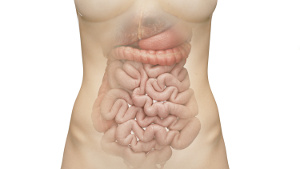 All the different B vitamins are of vital importance to our energy levels, nervous system, skin, hair, and health in general. Our daily diet is the primary source of the vitamins but the intestinal flora is able to synthesize, consume, and compete for vitamin B in the host. Interactions between the body and the gut flora is therefore important for how we absorb and utilize the different B vitamins. On the other hand, lack of B vitamins or supplementation with B vitamins can also affect our gut flora, according to a review article that is published in Frontiers in Nutrition.
All the different B vitamins are of vital importance to our energy levels, nervous system, skin, hair, and health in general. Our daily diet is the primary source of the vitamins but the intestinal flora is able to synthesize, consume, and compete for vitamin B in the host. Interactions between the body and the gut flora is therefore important for how we absorb and utilize the different B vitamins. On the other hand, lack of B vitamins or supplementation with B vitamins can also affect our gut flora, according to a review article that is published in Frontiers in Nutrition.







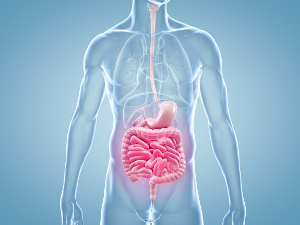 For decades, glucosamine has been used to prevent and treat osteoarthritis. According to a new study that is published in Nutrients, glucosamine supplements may also improve your digestion by counteracting abdominal bloating, constipation, and lumpy stools. It even looks as if glucosamine has other health benefits.
For decades, glucosamine has been used to prevent and treat osteoarthritis. According to a new study that is published in Nutrients, glucosamine supplements may also improve your digestion by counteracting abdominal bloating, constipation, and lumpy stools. It even looks as if glucosamine has other health benefits.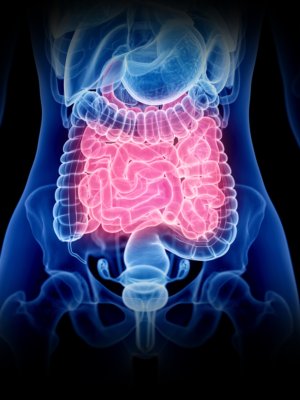 People with celiac disease are hyper-sensitive towards gluten, which we get from wheat and other grains. Gluten triggers inflammatory processes in the mucosa of the small intestine, impairing the uptake of nutrients. At the time of being diagnosed with the condition, people are often severely deficient in vitamin B12, vitamin D, folic acid, zinc, and copper. That problem should be addressed, according to a large study from the Mayo Clinic, a large, non-profit medical center based in Minnesota, USA. A growing number of people are affected by celiac disease that is linked to digestive problems plus other symptoms that are often misdiagnosed because the patient lacks vital nutrients. In this article, you can read about the difference between celiac disease and other types of gluten intolerance and find out how to deal with the problem.
People with celiac disease are hyper-sensitive towards gluten, which we get from wheat and other grains. Gluten triggers inflammatory processes in the mucosa of the small intestine, impairing the uptake of nutrients. At the time of being diagnosed with the condition, people are often severely deficient in vitamin B12, vitamin D, folic acid, zinc, and copper. That problem should be addressed, according to a large study from the Mayo Clinic, a large, non-profit medical center based in Minnesota, USA. A growing number of people are affected by celiac disease that is linked to digestive problems plus other symptoms that are often misdiagnosed because the patient lacks vital nutrients. In this article, you can read about the difference between celiac disease and other types of gluten intolerance and find out how to deal with the problem.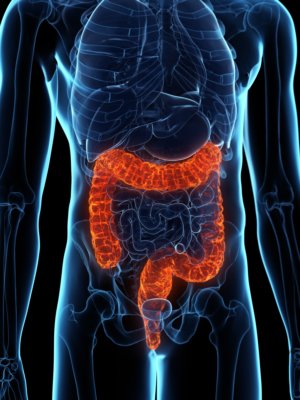 Irritable bowel is the most common intestinal disorder and affects around 15 percent of the population. The symptoms are typically unstable digestion, flatulence, constipation, diarrhea, stomach pain, and intestinal cramps. Several studies have shown that lack of vitamin D may cause the symptoms, and that taking a vitamin D supplement helps. This is because vitamin D is highly important for the intestinal immune defense and for controlling inflammation.
Irritable bowel is the most common intestinal disorder and affects around 15 percent of the population. The symptoms are typically unstable digestion, flatulence, constipation, diarrhea, stomach pain, and intestinal cramps. Several studies have shown that lack of vitamin D may cause the symptoms, and that taking a vitamin D supplement helps. This is because vitamin D is highly important for the intestinal immune defense and for controlling inflammation. Magnesium is involved in hundreds of different enzyme processes in the body, including ones that are important for our digestion. Magnesium is found in various compounds, and it has been known for a long time that magnesium oxide has a laxative effect. Because this particular magnesium compound only works locally in the intestine, it is difficult for the body to absorb it and is therefore not suited for supplementation if you want to correct a magnesium deficiency. In this article, we will look closer at dietary magnesium, the absorbability of different magnesium compounds, and magnesium’s role in our digestion and nervous system, which are closely related. We will also look at other symptoms that may be caused by a magnesium deficiency.
Magnesium is involved in hundreds of different enzyme processes in the body, including ones that are important for our digestion. Magnesium is found in various compounds, and it has been known for a long time that magnesium oxide has a laxative effect. Because this particular magnesium compound only works locally in the intestine, it is difficult for the body to absorb it and is therefore not suited for supplementation if you want to correct a magnesium deficiency. In this article, we will look closer at dietary magnesium, the absorbability of different magnesium compounds, and magnesium’s role in our digestion and nervous system, which are closely related. We will also look at other symptoms that may be caused by a magnesium deficiency.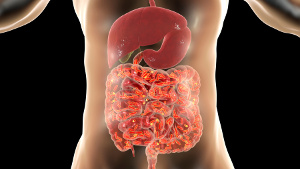 Selenium is an essential trace element of vital importance to our general health. The nutrient is also important for our gut flora, and being selenium-deficient may increase the risk of irritable bowel syndrome, inflammatory gut diseases like Crohn’s disease and ulcerous colitis, and even bowel cancer. Our intestine is also called our “third brain” because both our gut flora and digestion have a significant influence on our mental well-being, according to a review article published in Frontiers in Nutrition. The authors focus on selenium because selenium deficiencies are common in China, Europe, and many other places, and supplementation may be necessary.
Selenium is an essential trace element of vital importance to our general health. The nutrient is also important for our gut flora, and being selenium-deficient may increase the risk of irritable bowel syndrome, inflammatory gut diseases like Crohn’s disease and ulcerous colitis, and even bowel cancer. Our intestine is also called our “third brain” because both our gut flora and digestion have a significant influence on our mental well-being, according to a review article published in Frontiers in Nutrition. The authors focus on selenium because selenium deficiencies are common in China, Europe, and many other places, and supplementation may be necessary. Multiple studies have shown that vitamin D plays a key role in gut health by supporting the protective mucosa, the massive gut flora, the intestinal immune defense, and the regulation of inflammatory processes. According to a new review article published in Nutrients, lack of vitamin D, which is quite common, may therefore result in an increased risk of irritable bowel syndrome (IBS) and inflammatory bowel disease (IBD), which more and more people are affected by.
Multiple studies have shown that vitamin D plays a key role in gut health by supporting the protective mucosa, the massive gut flora, the intestinal immune defense, and the regulation of inflammatory processes. According to a new review article published in Nutrients, lack of vitamin D, which is quite common, may therefore result in an increased risk of irritable bowel syndrome (IBS) and inflammatory bowel disease (IBD), which more and more people are affected by. "After about one week of taking the Q10 supplement I could feel a huge difference," says 23-year old Alan Piccini, who has been suffering from extreme fatigue and muscle aches ever since he was a child.
"After about one week of taking the Q10 supplement I could feel a huge difference," says 23-year old Alan Piccini, who has been suffering from extreme fatigue and muscle aches ever since he was a child. “Taking capsules with co-enzyme Q10 has freed me of the severe side effects of my cholesterol lowering medicine,” Mrs Franken explains.
“Taking capsules with co-enzyme Q10 has freed me of the severe side effects of my cholesterol lowering medicine,” Mrs Franken explains.